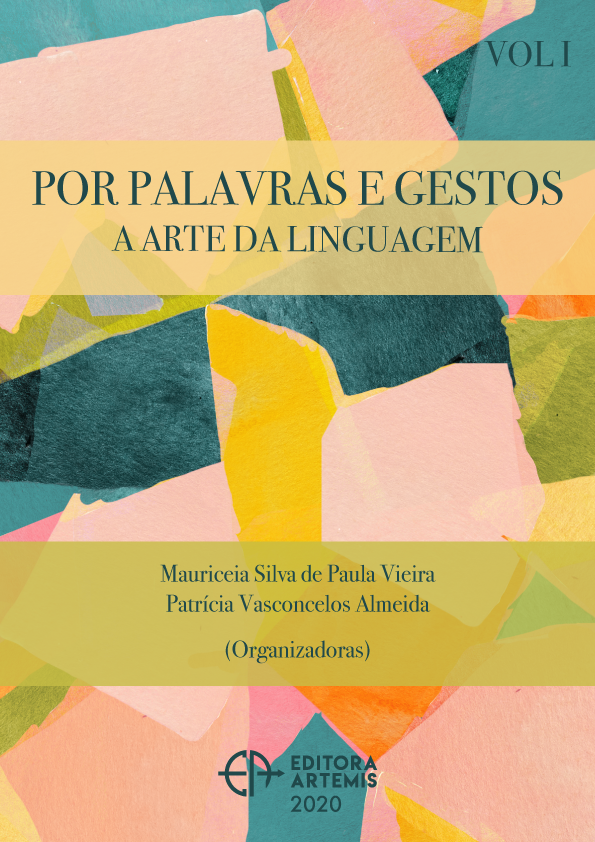
O LUGAR DA ORALIDADE E DA ESCRITA NAS AULAS DE LÍNGUA PORTUGUESA: ENCAMINHAMENTOS TEÓRICO-METODOLÓGICOS
O presente artigo visa apresentar e estabelecer uma conexão entre duas competências do ensino de línguas, a oralidade e escrita, trabalhadas até então por alguns de forma dicotômica. Partimos do pressuposto de que a oralidade é algo indissociável da escrita, acredita-se, assim, que ela agrega uma importância significativa no ensino de língua materna, uma vez que traz contribuições extremamente relevantes durante o processo instrutivo, capaz de subsidiar uma maior preponderância para se obter resultados mais produtivos. Em relação a escrita, observamos uma tendência peculiar a seu respeito, sendo esta a condição empregada por grande parte da sociedade de que ela é mais importante do que a oralidade. Para tanto, nos respaldamos, especialmente, nos contributos dos Parâmetros Curriculares Nacionais – PCN (1997), Antunes (2003), Marcuschi (2007), Bentes (2010) entre outras fontes de grande relevância para o trabalho em questão. Quanto à metodologia, este estudo é bibliográfico, de cunho qualitativo, que intenta discorrer sobre as habilidades mencionadas. Dito isso, enfatiza-se a relevância igualitária de ambas as competências. E, ainda, tem-se como alicerce a afirmativa de que não se deve haver uma lacuna entre as aptidões estudadas, pois elas são peças cruciais no processo do letramento, funcionando como elementos indispensáveis para o ensino, visto que a quebra ou fragilidade de uma delas acarretará numa aprendizagem deficitária, não atendendo, positivamente, aos requisitos essenciais dos alunos. Dado os enfoques necessários sobre a importância da escrita e oralidade, indica-se, ao decorrer do texto, algumas implicações pedagógicas visando uma ação docente mais ágil e eficaz, capaz de atender as necessidades dos aprendizes da contemporaneidade.
O LUGAR DA ORALIDADE E DA ESCRITA NAS AULAS DE LÍNGUA PORTUGUESA: ENCAMINHAMENTOS TEÓRICO-METODOLÓGICOS
-
DOI: 10.37572/EdArt_1013107208
-
Palavras-chave: Escrita e oralidade. Implicações pedagógicas. Língua Portuguesa.
-
Keywords: Writing and orality. Pedagogical implications. Portuguese Language.
-
Abstract:
This article aims to present and establish a connection between two teaching competences of languages, orality and writing, worked until then by some in a dichotomous way. We took the assumption that orality is something inseparable from writing, it is believed, therefore, that it adds significant importance to mother tongue teaching, as it brings extremely relevant contributions during the instructional process, capable of subsidizing a greater preponderance to obtain more productive results. Regarding writing, we observe a peculiar tendency regarding it, this being the condition employed by a great part of society that it is more important than orality. So, we support ourselves, especially in the contributions of: Parâmetros Curriculares Nacionais – PCN (1997), Antunes (2003), Marcuschi (2007), Bentes (2010) among other sources of great relevance to the research in question. As for the methodology, this study is bibliographic, of a qualitative nature, which tries to talk about the mentioned skills. That said, it emphasizes the relevance equal competence. And yet, it is based on the statement that whether there should be a gap between the skills studied, as they are crucial parts in the process literacy, functioning as indispensable elements for teaching, since the break or fragility of one of them will result in a deficient learning, not attending, positively to the essential requirements of students. Given the necessary focus on importance of writing and orality, some implications are indicated throughout the text educational activities aimed at a more agile and effective teaching action, capable of meeting the needs of contemporary apprentices.
-
Número de páginas: 13
- Manoel Cândido Nogueira
- Jocilene Mateus Amâncio
- Maria de Fátima Araújo Silva

